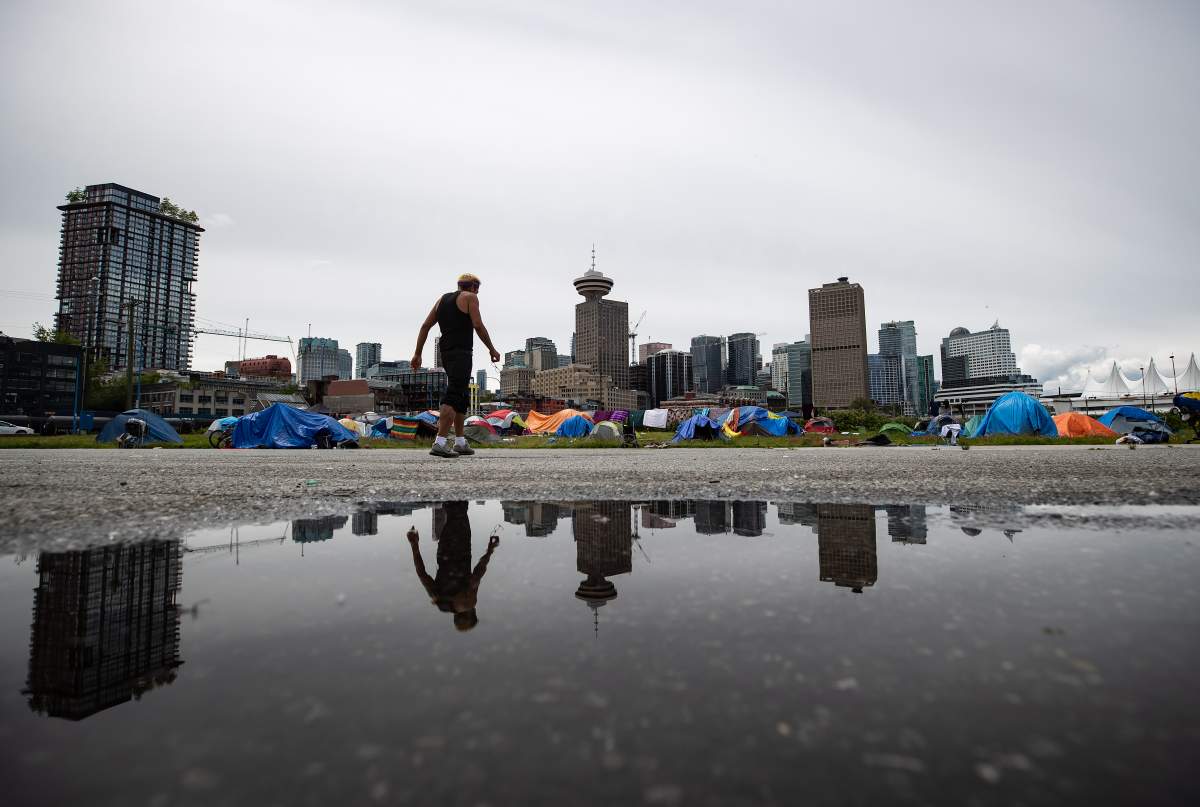British Columbia’s housing minister says a new method for collecting data on homelessness is the first of its kind in Canada and will help the province tackle the issue.

David Eby says the government used anonymized data from multiple ministry databases to paint a picture of homelessness across B.C. in 2019 that found trends like high per capita rates in northern rural communities and among men.
The report shows that just over half of people experienced homelessness temporarily rather than on a chronic basis.
Eby says the province previously relied on data from point-in-time counts in 25 communities, but those were known to undercount the number of homeless people.

He says the new data, which found 23,000 people experienced homelessness at some point in 2019, will complement those ongoing counts.
The data is a compilation of BC Housing’s shelter use database, those on income and disability assistance listed as having “no fixed address,” and demographics identified through the Medical Services Plan.

Get daily National news
The government says it will use the data to focus on preventing chronic homelessness rather than reacting to a particular housing crisis.
“British Columbia is the only province that collects this data on a provincial level,” Eby told a news conference on Wednesday.
“We now do it two different ways to try to ensure as best as possible accuracy and try to set benchmarks for measuring whether our programs are working, how they’re working, and where stressors are in the housing system that may be leading to homelessness.”




Comments
Want to discuss? Please read our Commenting Policy first.